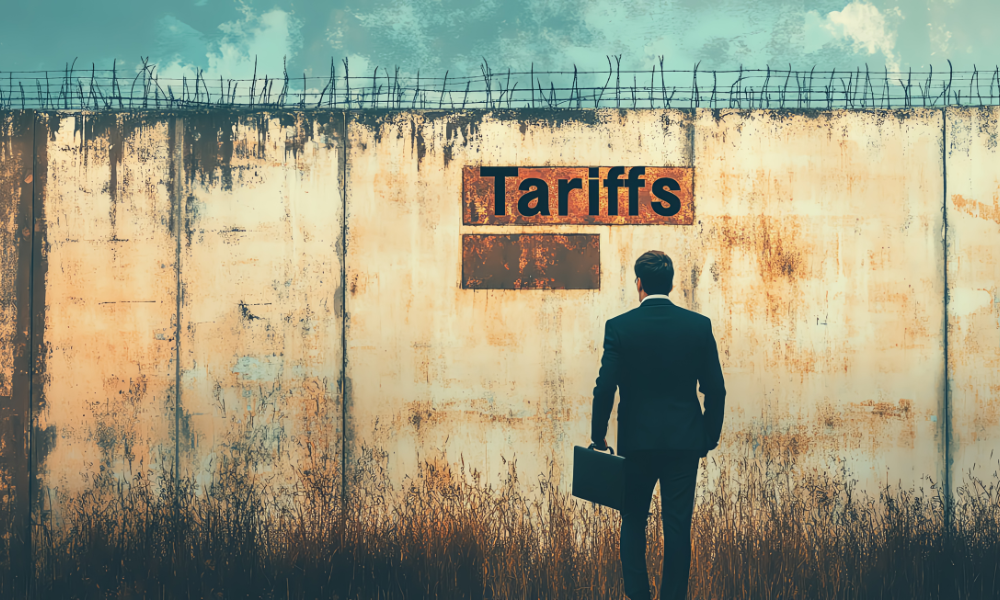CIBC's Benjamin Tal says tariffs could drive inflation, shake investor confidence, and impact USMCA talks

US President Donald Trump’s tariff policies are creating uncertainty in financial markets and could impact inflation, according to CIBC’s deputy chief economist Benjamin Tal.
Speaking with BNN Bloomberg on Wednesday, Tal said investors remain uncertain about the economic impact of tariffs on Canada and Mexico, noting that Trump appears to use uncertainty strategically.
“The investment community is very confused at this point,” Tal said, describing the current state of the market.
His comments followed a volatile week in equity markets, with a broad selloff on Tuesday after tariffs on Canadian and Mexican imports took effect, followed by market gains on Wednesday.
Tal pointed out vulnerabilities in Trump’s approach.
“Everybody is confused. We have this fog of uncertainty, and we have to try to make sense out of it. The point that I’m making is that there are some vulnerabilities to the position that [US] President Trump is taking, he’s not a superhero at the end of the day,” he said.
He also noted Trump’s past reliance on stock market performance as a gauge of success. “You cannot have a situation in which the stock market goes down under his watch, and clearly the stock market is not liking the concept of a tariff in any significant way,” Tal said.
Tariffs on Canadian energy could raise gasoline prices, directly affecting Trump’s voter base, Tal explained. The US consumes 21 million barrels of oil per day but produces only 13 million, with Canada supplying most of the shortfall.
Another concern, Tal said, is the inflationary impact of tariffs. “The other factor to focus on is inflation, if you go back to his campaign speeches he was criticizing, (former US President Joe) Biden and (former Vice President Kamala) Harris about inflation. The cost of living is dominating the agenda. A tariff is inflationary, if you impose a 25 percent across the board, it will be inflationary,” he said.
Despite the current uncertainty, Tal expects more clarity in the second half of the year.
He predicts that the weighted average tariff on Canada will settle around seven to eight percent, with some sectors like dairy and forestry facing tariffs of 20 to 25 percent, while others, such as the auto sector, may see little to no tariffs.
Regarding Trump’s broader economic strategy, Tal emphasized that “confusion is the key word” and suggested Trump is deliberately using uncertainty to influence business decisions.
He argued that Trump’s approach could push businesses to expand in the US instead of risking tariffs in other countries.
“So, you can get the benefit of a tariff without the cost of a tariff, that’s basically the idea behind this policy. Create as much fog as you can in order to get more people coming to the US where it’s clear, that’s more or less what he is trying to do,” Tal said.
However, he does not expect tariffs to remain in place indefinitely. “It doesn’t mean that there will not be tariffs. There will be tariffs, but they will not last for too long,” he said.
Tal also believes Trump may be positioning to renegotiate the United States-Mexico-Canada Agreement (USMCA) ahead of schedule.



